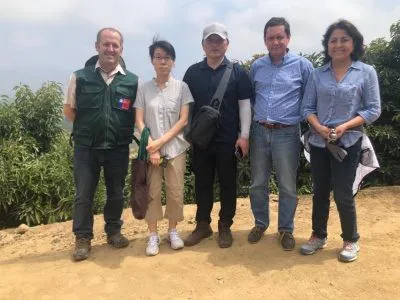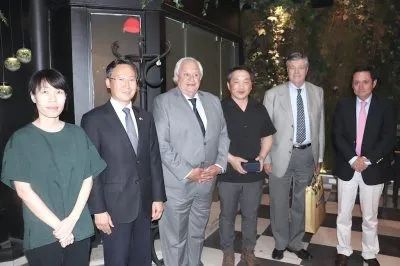Since the diversification of markets is important for Chilean fresh fruit exports, the work carried out by the authorities of the Ministry of Agriculture and the Agricultural and Livestock Service, together with the Association of Fruit Exporters of Chile AG (ASOEX), and the Animal and Plant Quarantine Agency (APQA) of South Korea to achieve the entry of fresh Chilean avocados to that market is very relevant.
Last week two APQA inspectors visited avocado orchards and packings in the Metropolitan and Valparaiso regions to verify, on-site, the production and export procedures for this fruit to ensure that there are no pest risks.

"We see the opening of the South Korean market as a great opportunity, not only to diversify avocado exports but also to continue consolidating a greater presence in Asian markets," stated Ronald Bown, the president of ASOEX.
In turn, the Minister of the South Korean Embassy in Chile, David Yang, said: “Chile is perhaps our main partner in the region. In addition, it was the first country in the world with which South Korea signed an FTA. Chile produces first-class products, which has allowed it to build a good image worldwide and among Korean consumers.”
During the tour of the orchards and fruit plants, Korean inspectors were accompanied by professionals from the Agricultural and Livestock Service, such as Claudio Moore, from the Agricultural and Forestry Products Section of the SAG Export Phytosanitary Requirements Sub-Department, Miguel Canala-Echeverría, the general manager of ASOEX, and Paulina Escudero, agronomist of the same entity.
On this tour, Korean inspectors also got to learn about the Fruit Fly Program that SAG carries out in the area.

“The inspectors were satisfied with their visits, not only regarding the handling of the fruit, but also its quality, and the technology implemented to have efficient irrigation, harvesting, and packaging processes. Therefore, we hope to receive a positive response, once the inspectors return to Korea and make their respective report. The next stages contemplate making some adjustments to the export procedures and fulfilling some administrative stages in Korea, which are expected to be completed for the next season of avocado exports, which starts next August,” said Miguel Canala-Echeverria.
South Korea is the second destination of Chilean exports within Asia. During the 2018-2019 season, Chile sent 54,705 tons of fresh fruits to Korea. Table grapes were the main export product with 72.5% of all fruit exports there. They were followed by cherries with 7.6%, lemons with 6.9%, kiwi with 4.7%, blueberries with 3.3%, and oranges with 2.4%.

For more information: www.asoex.cl
